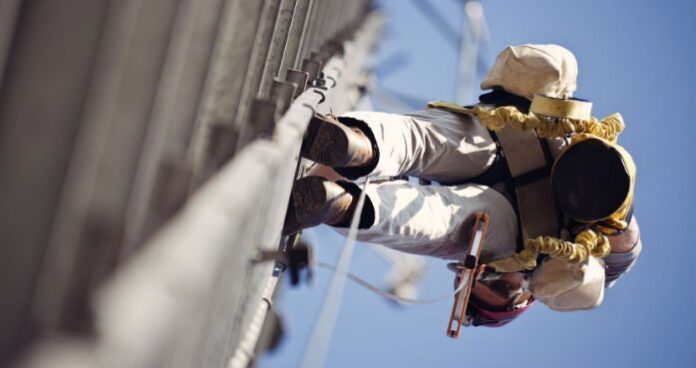A tower climber looking to upgrade his career or move to a different company has to make sure he puts his best foot forward (or up) to let employers know he is the best candidate for the position. Everybody knows to play up their strengths on a resume, but what exactly are tower companies and recruiters looking for? In an attempt to unlock this mystery and keep the workforce more informed, RCR Wireless News spoke to Verticom, TelForce Group, and Global Recruiters of Blackhawk among others to determine the top 3 skills employers look for on a climber’s resume.
3. Certifications / Flexibility
Number three is a two-way tie between having certifications and flexibility. There are several certifications climbers must acquire before they can even set foot on a work site. These include but are not limited to:
- Gravitec Authorized Climbing and Rescue
- American Red Cross First Aid/CPR/AED
- RSI RF Awareness
- Crosby Rigging
- OSHA 10 Hour for Construction
If a company really wants to work with you and you’re a little green, they will take the time to send you to trainings and pay for you to get your certifications. However, you will be a much more appealing candidate if you already have some or all of these, because it means you can hit the ground running and start working on a site sooner, which saves the company time and money. Some companies will want to retrain you anyway, in some of these areas, even if you have the certifications, but the fact that you have them already shows initiative, which is also a good quality.
Flexibility can mean many things: Are you willing to travel for much of the job? Have you already traveled a lot for a previous climber job? Are you willing to put in overtime in order to get a job done? The life of a climber is very nomadic in nature, depending on the needs of the industry, so companies will want to see either that you already understand this, or are willing to adapt to it as necessary.
2. Leadership Qualities
This does not necessarily mean that you need experience as a foreman or top hand. Leadership qualities can be found in even those relatively inexperienced. This could be shown through military experience, civic service in your community (volunteering or otherwise), or general initiative and “go get ’em” attitude.
One could play up certain initiatives they’ve spearheaded at the company, such as better safety signage around the office or on work sites. Or if you’ve mentored green tower hands without anyone asking you to do so, this would also count as leadership. If your boss that witnesses this behavior or the person you mentored could write a letter of recommendation, all the better.
Another aspect of leadership is someone who handles himself and everyone else around him in tough situations. For example, in the terribly unfortunate situation of an injury to a fellow tower climber on the job, how do you handle the situation? Do you panic, or do you act on the training you’ve been given to help out and keep calm? This is a job that is very physical with potential hazards and employers want to know you can keep a cool head when things get tough. That’s the sign of a true leader and someone employers want on their team.
1. Tower Climber Experience
This one seems obvious, but it’s true. Employers first and foremost look at your tower-climbing experience. How long have you been in the industry? 1-3 years? 5-10? The amount of experience can make all the difference in the world when being considered for a position. Training is very important, but nothing beats good ole hands-on experience in the field. If you have this, everything else is more-or-less negotiable.
Another important factor concerning experience is how long have you been with each company? Employers like to see longevity with a company — it shows commitment and a “stick-with-it” attitude. Bouncing around between too many companies can make you look unstable or difficult to work with. These are just initial impressions an employer may get, so if you fear this may be an issue, be sure to discuss any extenuating circumstances up front either in conversation or in a cover letter that accompanies your resume.
What if I have no tower climber experience, you may ask. Some companies see this as a deal breaker and only want seasoned climbers, while others are willing to take on those with no experience. If you have no experience in tower climbing, then employers want to see experience in construction of any kind or experience in any job that involves heights, including wind turbines, ships, or electrical.
Honorable Mention
After speaking to tower climbers in the community, we’ve learned what their perspective is on this. There is another important hiring consideration that deserves mentioning in this list. Companies typically ask whether climbers have their own equipment. This is for several reasons. First, the company may only provide tower industry-specific equipment, such as a cathead, but still require the climbers to have their own hand tools or harness. Or if the company does provide truly all of the equipment, having your own equipment and tools is a sign that you’re dedicated to this industry and working in it. It shows you’ve made an investment in your future and safety within your job. One climber even claimed that he’s never been to a job interview for a climbing position where he wasn’t asked whether he has his own equipment, so it must be incredibly important.
If you’re looking for work in the tower industry, be sure to check out Towercrews.net for a wide variety of tower jobs across North America.
Feature Image Copyright: benkrut / 123RF Stock Photo

